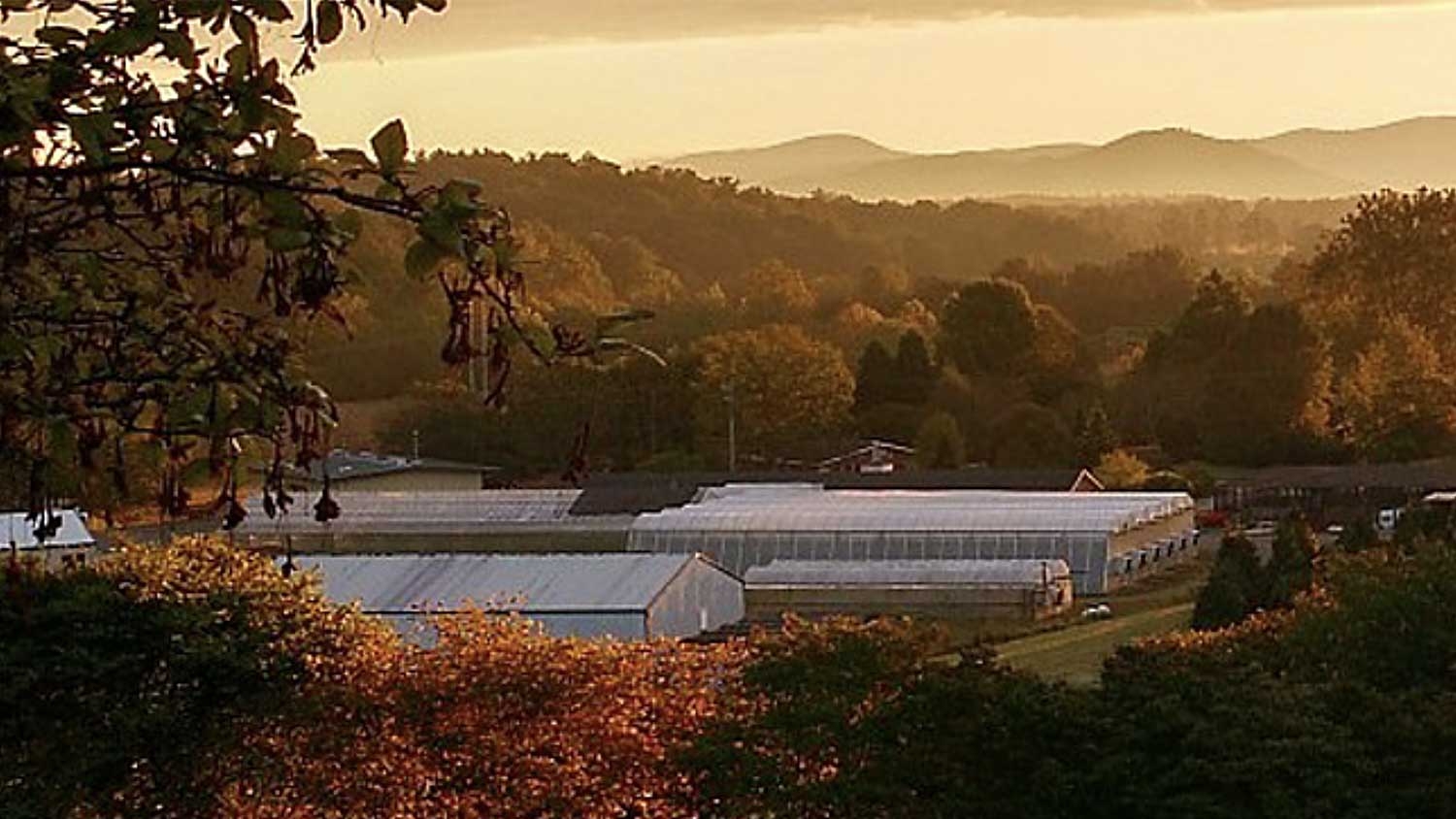USDA Funds NC State Specialty Crop, Organic Research

NC State University will receive more than $18.3 million in U.S. Department of Agriculture funding for research on specialty crops and organic agricultural production.
Two of NC State’s largest funded projects — focusing on automation for nursery crops and genetic improvements in Christmas trees — are part of the National Institute of Food and Agriculture’s (NIFA) Specialty Crop Research Initiative, which includes $70.4 million in funding for U.S. fruits and vegetables, tree nuts, dried fruits, and horticulture and nursery crops, including floriculture.
Faculty heading up those efforts include:
- $9.8 million: Anthony LeBude, an associate professor and nursery Extension specialist based at the Mountain Horticultural Crops Research and Extension Center in Mills River, North Carolina, will lead a national effort to invent automation and stimulate adoption of existing technology and efficient production practices that help stakeholders produce physically demanding, labor-intensive horticultural crops more sustainably. Robotics engineers will design and develop labor-saving technology such as laser-guided inventory management systems, unmanned weed control applicators and image-based artificial intelligence to scout pests. Nursery crops produce $16.8 billion annually and create many rural jobs.
- $7.4 million: Justin Whitehill, an assistant professor and Extension specialist in the College of Natural Resources, will lead research to accelerate genetic improvements in fir trees through sequencing. North Carolina is the nation’s second-largest producer of Christmas trees, with fir species accounting for more than two-thirds of the $2.5 billion annual Christmas tree industry.
“We know specialty and organic crops add nutrition to our diets and value to sustainable agriculture systems,” said USDA Chief Scientist and Under Secretary for Research, Education and Economics Chavonda Jacobs-Young, who earned bachelor’s, master’s and doctoral degrees in natural resources at NC State. “These crops also play a vital role preserving cultural heritage and enhancing economic opportunities across local, regional and global food systems, making them great competitive funding investments that target some of the most difficult challenges facing specialty crop and organic producers nationwide.”
NC State also received funding for research as part of NIFA’s $50.5 million investment in 30 organic agriculture projects under its Organic Agriculture Program. A long-term NC State research and Extension program received funding through the Organic Transitions Program:
- $1 million: Alexander Woodley, an associate professor affiliated with the N.C. Plant Sciences Initiative whose work focuses on soils in sustainable and organic agriculture, will lead collaborative research with N.C. A&T State University on carbon storage in soils. The project will evaluate the effects of adding crushed silicate minerals to soil, known as enhanced weathering, in organic row crop and small-scale organic vegetable production, measuring both agronomic effects and greenhouse gas mitigation potential.
The Organic Agriculture Research and Extension Initiative provided funding for an information-gathering summit to be organized by Carolina Farm Stewardship and the Center for Environmental Farming Systems at NC State. The details of that event include:
- $75,000: Alumni Distinguished Undergraduate Professor of Agroecology Michelle Schroeder-Moreno will lead a one-day Southeast Organic Agriculture Research Symposium where growers, scientists and farm organizations can identify their top research priorities.
For more information about the $121 million investment in U.S. specialty crops and organic agriculture, read the USDA announcement.
Lists of Funded Projects:
- Specialty Crop Research Initiative
- Organic Transitions
- Organic Agriculture Research and Extension Initiative
This post was originally published in College of Agriculture and Life Sciences News.